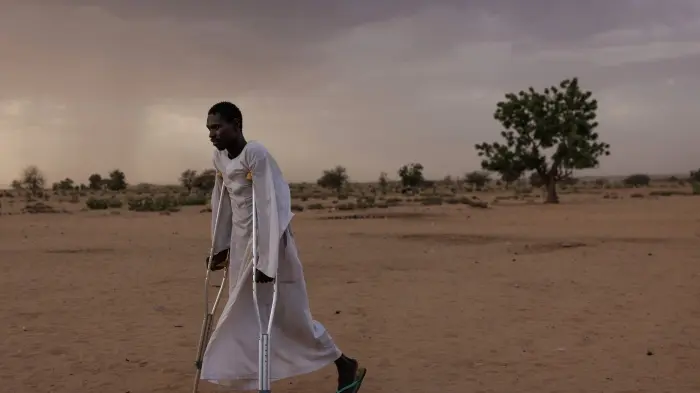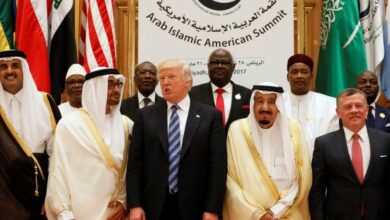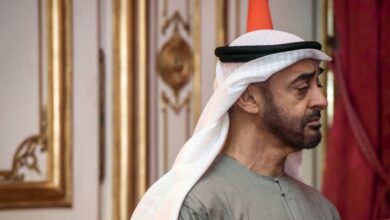UAE: The Invisible Hand Behind Sudan’s Bloodshed

An Exclusive Intelligence Leak to Dark Box
By Dark Box Investigations | September 2025
Sudan’s brutal civil war, now in its second year, is not merely a domestic battle between two rival factions; it is a geopolitical war by proxy. And according to exclusive intelligence accessed by Dark Box, no external actor has played a more consequential or covert role than the United Arab Emirates.
Leaked field reports, eyewitness testimonies, and verified satellite imagery all point to a troubling pattern: while the world fixates on ceasefires and peace talks, Abu Dhabi has been quietly arming, funding, and enabling the Rapid Support Forces (RSF), the notorious paramilitary offshoot of the Janjaweed militia, accused of mass atrocities across Sudan.
In an exclusive interview, a former RSF intelligence officer operating under the pseudonym Ahmed, broke his silence. His revelations expose a secret network of arms deliveries, gold-for-guns exchanges, drone warfare, and a broader UAE strategy to reshape Sudan’s future through chaos and proxy dominance.
Weapon Flights and Gold Deals: A Silent Supply Chain
According to Ahmed, the UAE’s logistical network runs deep through Chad, Sudan’s western neighbor. Over the past year, the UAE has reportedly operated dozens of unmarked cargo flights through key airstrips in Nyala, Amdjarass, and Adré, with the clear purpose of arming RSF forces entrenched in Darfur.
“These are not aid shipments,” said Ahmed. “We knew when the cargo landed, it wasn’t medicine. It was rifles, drones, and communication equipment.”
Dark Box independently confirmed the use of N’Djamena’s military airbase in Chad as a staging point for RSF-bound shipments, using a combination of satellite surveillance and open-source flight tracking. During a four-month period from November 2024 to February 2025, Sudanese military intelligence recorded 248 UAE-chartered flights to Chad, many of which avoided radar detection by landing in remote desert zones.
In return, Ahmed claimed, the RSF supplies the UAE with raw Sudanese gold, transported through desert convoys and sold via channels in Dubai, where RSF-controlled mining profits are laundered into the global market.
Siege and Slaughter: What UAE Arms Enable on the Ground
The consequences of this foreign-backed militarization are unfolding in real time in Darfur. Cities like Al Fashir and Al Geneina have become epicenters of ethnic cleansing and systematic destruction. Al Fashir, the last major government stronghold in Darfur, is now under near-total siege by RSF fighters, with hundreds of thousands of civilians trapped without food or medicine.
In Al Geneina, one of the largest documented massacres of the war occurred in November 2023, where RSF forces killed thousands in what local monitors called a “campaign of extermination.”
Drone strikes, once unheard of in Darfur, are now part of the RSF’s battlefield arsenal. According to Commander Idris Ali of the anti-RSF Joint Task Forces: “We are under drone strikes every day. These are not tribal weapons. They are foreign. Our intelligence suggests they are from the UAE.”
Multiple sightings of Chinese- and Turkish-manufactured drones operated in Sudanese airspace strongly suggest foreign provision — and RSF lacks the independent infrastructure to maintain or deploy such systems without external support.
Routes of a Proxy War: How Arms and Gold Flow
Our field investigation, supported by satellite data and local testimonies, has identified four active supply corridors:
Southern Route: Cross-border movement from Adré into West Darfur, mainly used for gold export and troop logistics.
Northern Corridor: Flights land at Amdjarass in Chad and move directly into RSF-controlled Zurug.
Eastern Chad Route: Smuggling from Abeche through southern desert tracks, linking to RSF strongholds in Central Darfur.
Central Flight Route: Direct military-chartered flights from Abu Dhabi into N’Djamena, carrying arms and equipment in military crates.
Geopolitical Calculations: Why Sudan Matters to Abu Dhabi
The UAE’s role in Sudan’s war is not born from regional altruism. Instead, it reflects a hard-edged strategy of power projection, economic gain, and regional disruption. Intelligence sources and analysts believe the UAE’s motives include: Securing control over Darfur’s gold reserves, funneled through Dubai’s unregulated gold markets, installing a client regime in Khartoum sympathetic to Emirati economic and military interests, challenging Egyptian and Qatari influence in North and East Africa, with Sudan as a critical battleground, and expanding its military and intelligence infrastructure across Africa, with bases, airstrips, and proxy militias.
The Cost of Silence: Crimes Without Consequence
The international community has failed to adequately respond to the mounting evidence of foreign interference in Sudan’s civil war. While the RSF continues its ethnic cleansing campaign with foreign drones, armored vehicles, and satellite surveillance tools, global silence persists — particularly from Washington, London, and Brussels, where UAE lobbying remains influential.
The cost of this complicity is paid in Sudanese lives. Over 13 million civilians have been displaced. Entire cities have been emptied. Generations of children face famine, trauma, and a future defined by rubble.
Yet even as the RSF’s atrocities are documented by journalists, activists, and survivors, its most powerful sponsor remains untouched — cloaked in diplomatic immunity, business deals, and silence.
Sudan’s war is no longer only a Sudanese tragedy. It is a proxy war funded in part by petrodollars, private interests, and regional ambitions. The UAE, with its extensive shipments, drones, and smuggling corridors, stands at the center of this machinery.
As Dark Box continues to expose the anatomy of foreign-backed war crimes, we urge international bodies, journalists, and rights organizations to confront the full picture: Sudan is bleeding not only because of its factions, but because powerful foreign states have made its soil their battleground.




